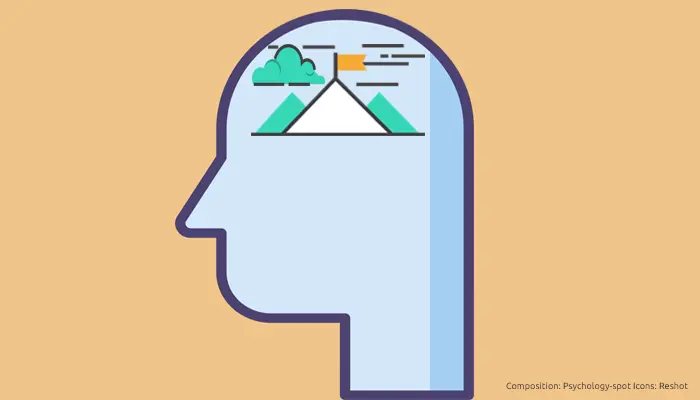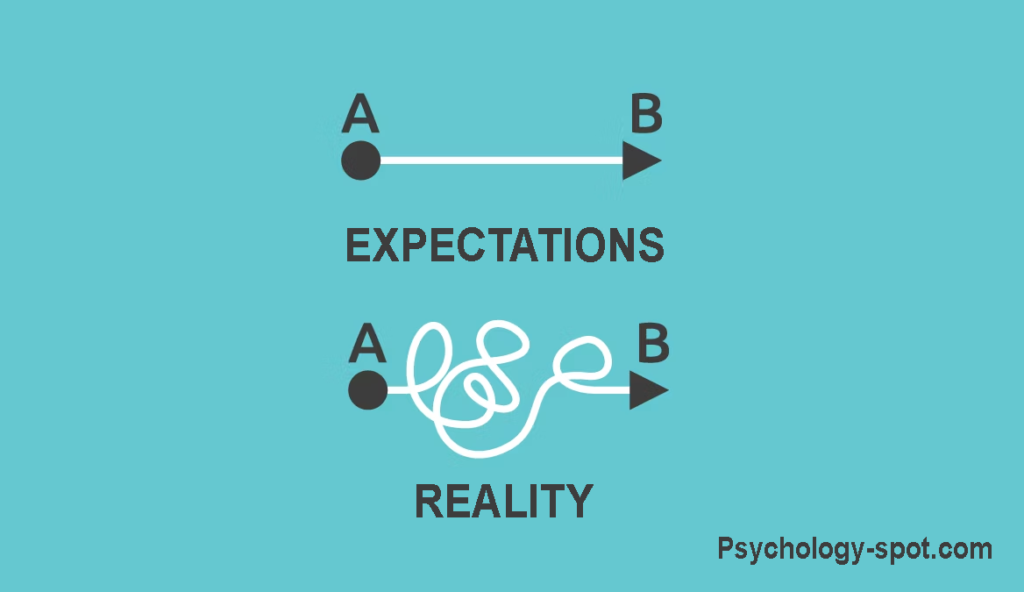
Expectations are personal beliefs about events that should happen in the future and how they should happen. Many times these are assumptions, more based on our illusions and desires than on reality, but they have an enormous influence on our feelings, thoughts and behaviors.
When we have high expectations and they are not met, we can suffer some of the biggest disappointments in life, blows so big that they can even lead us directly to depression. As Brad Warner said, “Disappointment is just the action of your brain readjusting to reality after discovering that things are not as you thought they were.”
However, expectations are not our enemy. In fact, trying to get rid of them and live without expectations is unrealistic. The key is to find the balance: adjusting expectations based on our experiences and the real probabilities of something happening.
The importance of feeding realistic expectations
Every day we have to make a multitude of decisions, from the smallest to the most important. To make those decisions, we need to have a minimum of security, which is often given by expectations. We hope to get there sooner if we take the shortest way and we hope that our friend will pay us back the money we have lent him.
The “security” provided by these expectations helps us to reduce the uncertainty inherent in the decision-making process. In fact, neuroscientists at Boston University found that it makes us feel better throughout the process, since our brain reacts to those expectations that provide some certainty about the results as if it were a gratification.
What does it all mean?
It means that, although we are aware that any decision involves a certain degree of uncertainty – which we must learn to accept and manage – we also need that minimum dose of security provided by expectations so as not to feel that we are jumping into the void without a parachute.
Our brain craves rules, certainties, and control. When our expectations are met, the reward centers of the brain are activated and we feel good. That means that expectations can be a valuable tool for generating serenity since they represent the possibilities and help us visualize the results.
However, unfulfilled expectations break that balance and activate an alarm signal in our brain that causes us discomfort. Broken expectations hog cognitive and emotional resources to try to correct inconsistencies perceived as mistakes, which ends up overloading us.
That’s why we feel so bad when we’re almost sure something is going to happen and then it doesn’t. In fact, we not only feel disappointed, but we can also experience a feeling of strangeness or even blockage as we have a hard time understanding where our mental plan has gone wrong. To harness the potential of expectations by reducing the risks they represent, we simply need to make sure that we set realistic expectations.

The keys to adjusting expectations to reality
• Understand the origin of expectations
For starters, it’s helpful to recognize that many of our expectations actually stem from social narratives, which become internalized projections of how things “should” be. These external sources usually feed on the family, society or culture. In fact, each social role that we embody, from being parents or children, to professions, carry a list of expectations.
On many occasions, unrealistic expectations come from those social norms. In other cases they originate from our unsatisfied needs and deepest desires. Recognizing where they come from will help us adjust expectations to reality, getting rid of predetermined beliefs about how things or relationships should be.
• Assess if they are adaptive
Unrealistic expectations create problems while realistic expectations provide us with the necessary dose of security. When expectations are set too high, we are more likely to fall, which will make us feel worse. When they are too low, we are not motivated enough to take risks and move forward. Therefore, in the process of adjusting expectations we must always ask ourselves if what we expect is adaptive and healthy.
Do those expectations help us better prepare for the future? Do they provide us with a well-founded security? Are they flexible enough? Do they motivate us? Do they take the facts into account? Are they based on our potentialities? Realistic expectations do not hinder our development, but encourage us to keep moving forward. When we manage to balance them, they propel our progress and foster growth.
• Assume expectations as possibilities
One of the main problems with expectations is to confuse them with certainties. If we take the shortest way, it is possible that we will arrive earlier, but it is not a certainty since there could be more traffic, for example. Equating expectations with certainties confuses our brain and that is why we cannot give it an actionable meaning.
Instead, we can use expectations to broaden our horizon and consider a greater number of possibilities. We can imagine everything that could happen to prepare for those scenarios. In fact, this type of thinking gives us more clarity and allows us to be more flexible and adapt along the way, which is precisely the goal of realistic expectations.
• Test expectations
Adaptation goes hand in hand with flexibility. Adjusting expectations involves acknowledging the existence of conflicts and setbacks, accepting that often things will not go as planned. It is about paying more attention to our expectations about others, ourselves or the world, realizing their failures.
So we need to acknowledge that we had unrealistic expectations. And instead of getting discouraged by it or feeling disappointed, we simply need to adjust expectations by setting more achievable goals. It is not a question of resigning ourselves, but of adapting our hopes to what we really have the possibility of achieving or to what we can ask of others without limiting their freedom.
After all, expectations are beliefs about what should or should not happen, and on many occasions that is out of our control. Expectations are about the future, so we cannot aspire to absolute certainties. It is simply about learning to manage that risk and uncertainty by keeping it at an appropriate level that allows us to feel comfortable without falling into excessive optimism.
Source:
Farrar, D. C. et. Al. (2018) Functional brain networks involved in decision-making under certain and uncertain conditions. Neuroradiology; 60(1): 61–69.




Leave a Reply